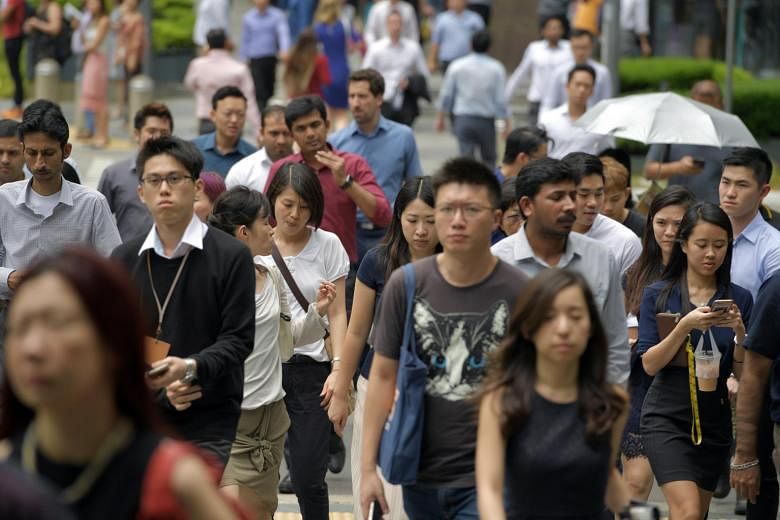The Straits Times associate editor Vikram Khanna is right to note that inequality and poverty are interrelated, and that we should aim to alleviate the effects of both (Why inequality, and not just poverty, matters to Singapore, The Straits Times Online, June 19).
Mr Yaron Brook and Mr Don Watkins' earlier article (Why we should care less about inequality in S'pore, June 1) had assumed that "if the pie is constantly expanding, because people are constantly creating more wealth, then one person's gain doesn't have to come at anyone else's expense", and that "rising inequality is perfectly compatible with a society in which the vast majority of citizens are getting richer".
This sounds good in theory but does not hold water empirically. Even as Singapore's economy has been consistently growing, the rise in income inequality has been accompanied by middle-class incomes stagnating, and even real wage declines for the lower class.
Mr Justin Ong, in a rejoinder to responses to Mr Brook and Mr Watkins' commentary, mentioned that "inequality is about a gap in numbers and speaks nothing of the socio-economic mobility of the poor" (The fight is with poverty, not inequality, June 14).
This is mistaken. Inter-generational income elasticity (the disparity between incomes among generations) is heavily correlated with social mobility, with countries that have lower inter-generational income elasticity, such as Denmark and Norway, having higher social mobility rates.
If income levels remain stagnant, social mobility increasingly depends on the income level that one starts with, and if income inequality worsens over time, this affects the next generation's chances of social mobility.
For example, the education system is one way by which lower-income families can achieve social mobility.
However, higher-income families can invest heavily in their children by enrolling them in enrichment classes to give them a head start.
This is a privilege that lower-income families cannot afford, and if their incomes stagnate, the result is that children from more affluent families will have greater access to educational opportunities.
We need to recognise that a rising tide does not lift all boats and to dispel the notion that a growing pie means bigger slices for all. Inequality, even as it might lead to overall growth, does have pernicious effects on access to opportunities for the poor.
Hence, we should always strive to ensure that efforts to reduce inequality are aimed at ensuring greater social mobility and a more egalitarian society.
Isaac Neo Yi Chong

